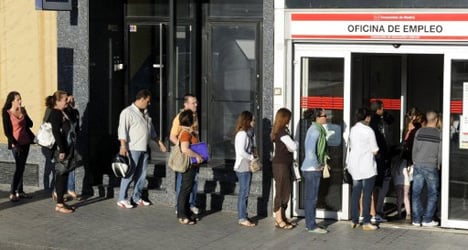Young people who end up taking the benefits include those who attend special schools for the mentally disabled or require several extra years to complete upper secondary school and receive special compensation instead of student loans, newspaper Svenska Dagbladet (SvD) reported on Wednesday.
Social Security Minister Ulf Kristersson pointed out that a number of these individuals leave the labour market with relatively unclear psychiatric diagnoses instead of receiving help from employers.
He added that the solution to their mental illness cannot be that they will never work, calling it “inhumane,” according to the report.
Even at the end of 2006, Prime Minister Fredrik Reinfeldt lamented the large number of young people who were ‘retiring’ from the workforce and instead receiving sick or disability benefits.
“It is clear that it is not good. It must be very odd for those who are 25 years old and are told that ‘as we see it, you have clearly worked,'” he told news agency TT at the time.
That year, 4,500 young people under 30 years old took what were then termed “early retirement” benefits (förtidspension).
By last year, the number had risen to 6,700, according to preliminary statistics from the Swedish Social Insurance Agency (Försäkringskassan).
The ruling Alliance coalition is now expressing its dismay at the high number in even stronger terms.
“We cannot continue to put young people on disability benefits who will never come off of them, it is unfair. It is a political catastrophe,” Kristersson told SvD on Tuesday.
He emphasised that it is not about “forcing someone into the labour market.”
“This will be done carefully,” he promised.
However, the minister’s goal remained clear.
“I want to bring down the number of new young people taking on disability pensions by a couple thousand a year. It will be one of my biggest political challenges,” Kristersson told SvD.
Kristersson has pledged to reduce the number of young people receiving the benefits by one-third this year, according to SvD.


 Please whitelist us to continue reading.
Please whitelist us to continue reading.
Member comments